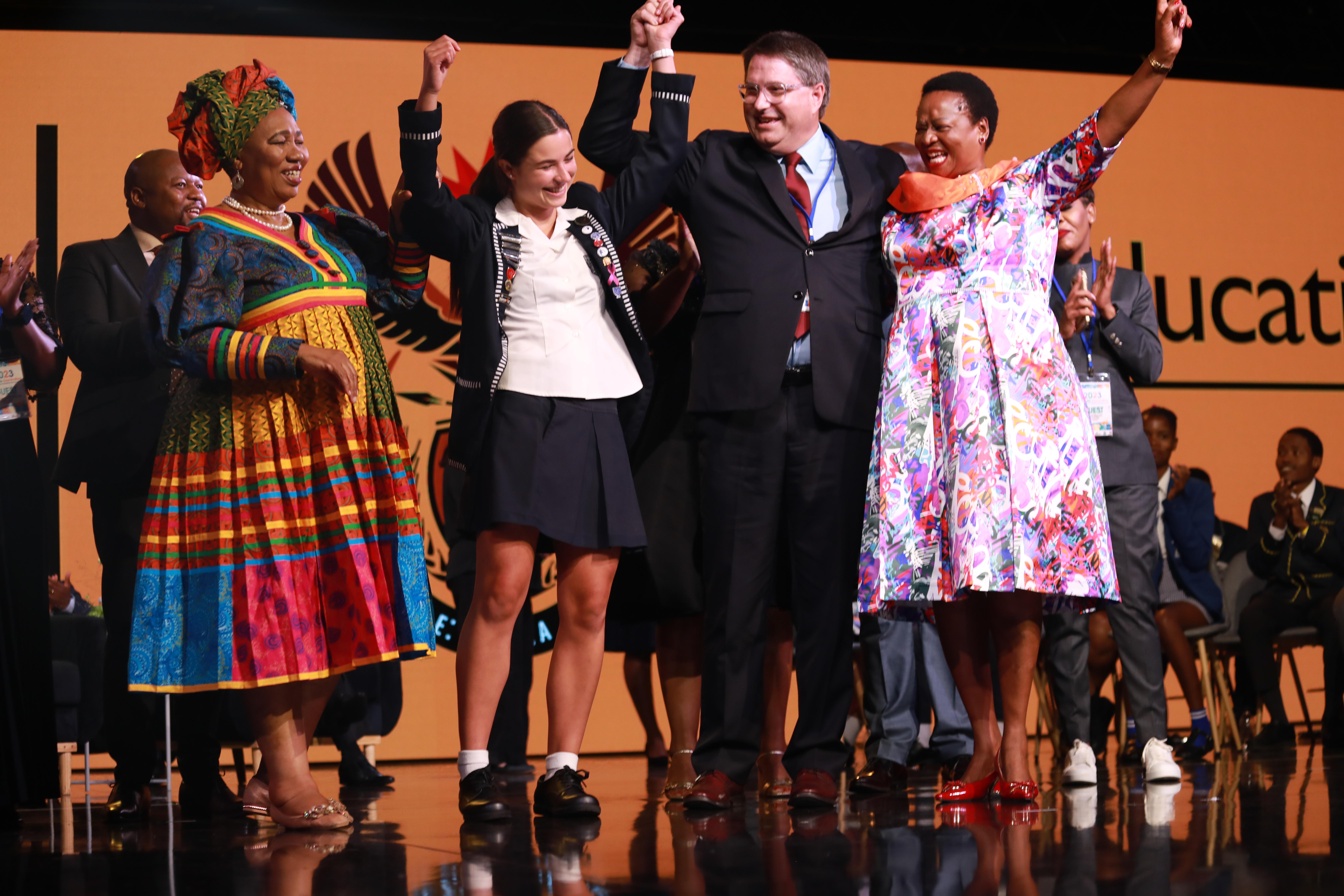As the world ushers in the promises of a new year, 2024 brings with it a fresh wave of excitement for the youngest learners embarking on their educational journey. Grade 1, a pivotal milestone in a child's academic life, commences with eager anticipation and the promise of discovery. Parents, teachers, and students alike are filled with enthusiasm as they embark on this new chapter of growth and learning.
Meanwhile, the air is charged with a different kind of anticipation for the graduates of 2023. The matriculants of the previous year are anxiously awaiting the culmination of their efforts, as the results of the National Senior Certificate (NRC) exams are set to be released. For them, this moment marks the end of a chapter and the beginning of new opportunities and challenges.
At the MTN Innovation Centre, Project CBNews is gearing up for a unique breakfast event with the top achievers of the class of 2023. This initiative seeks to celebrate the academic accomplishments of these bright minds and provide a platform for them to share their experiences and insights. As the morning unfolds, the atmosphere is filled with a sense of camaraderie and achievement.
The climax of the day, however, is reserved for the evening at Mosaiek Church in Randburg. At 6pm, the much-awaited release of the 2023 NRC results will take place, casting a spotlight on the individual achievements of each student. Project CBNews is set to capture this pivotal moment through a live stream, bringing the excitement and emotions of the occasion to a broader audience.
Keynote Address by the Minister of Basic Education, Mrs Angie Motshekga, MP, delivered during the Release of 2023 National Senior Certificate (NSC) Examination Results (Summarised version)
The announcement of the 2023 National Senior Certificate (NSC) examination results reflects thirty years of consistent progress in South Africa's basic education. The government's commitment to social justice principles, including access, equity, redress, inclusivity, quality, and efficiency, has led to significant advancements. Despite a budget allocation lower than developed OECD countries, per-learner spending underscores the dedication to providing quality education, aligned with the principles of the Freedom Charter. The expansion of access to educational institutions, including a surge in early childhood development opportunities, has resulted in a noteworthy increase in school attendance rates, with 98% attendance for compulsory education in South Africa.
 James Michael Dent, Westville Boys High School KZN, Top Mathematics Achievers
James Michael Dent, Westville Boys High School KZN, Top Mathematics Achievers Jared Ryan Benn Wynberg Boys' High School, WC
Jared Ryan Benn Wynberg Boys' High School, WC 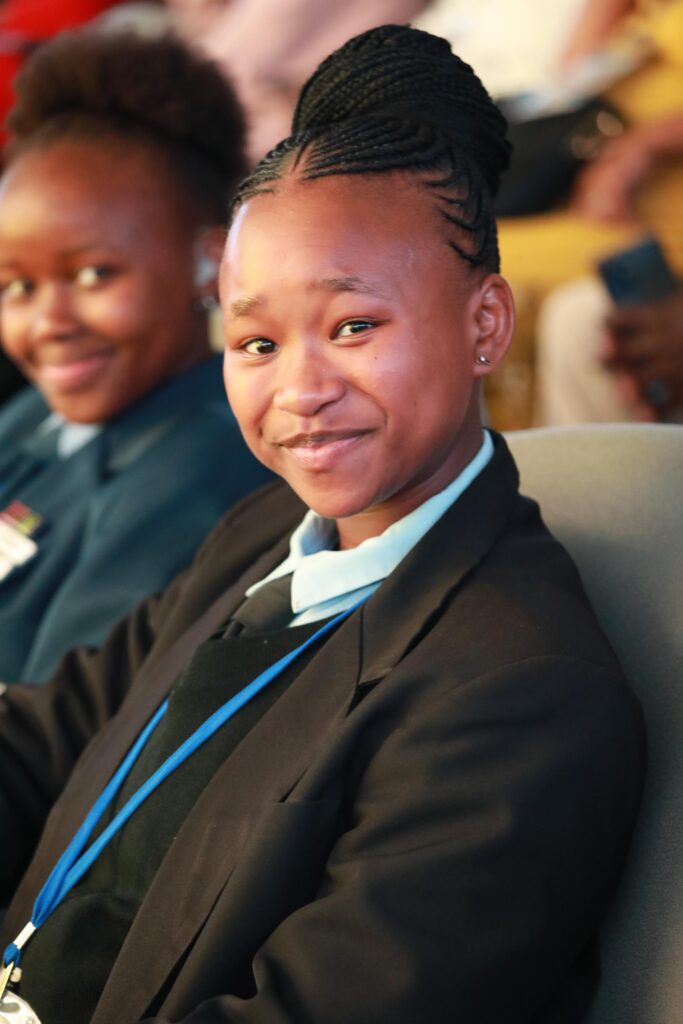 Xoliswa Nkabinde, Kwathintwa School For The Deaf KZN
Xoliswa Nkabinde, Kwathintwa School For The Deaf KZN Jaskaran Moopanar Rajaruthnam, Westville Boys High School KZN
Jaskaran Moopanar Rajaruthnam, Westville Boys High School KZN Melissa Muller, Girls’ High School WC
Melissa Muller, Girls’ High School WC James Michael Dent Westville Boys High School KZN
James Michael Dent Westville Boys High School KZN Minister of Education - Ms Matsie Angelina Motshekga
Minister of Education - Ms Matsie Angelina Motshekga Top Achievers of 2023
Top Achievers of 2023 Top Achievers of 2023
Top Achievers of 2023 Top Achievers of 2023
Top Achievers of 2023 Deputy Minister of Basic Education, Dr Reginah Mhaule
Deputy Minister of Basic Education, Dr Reginah Mhaule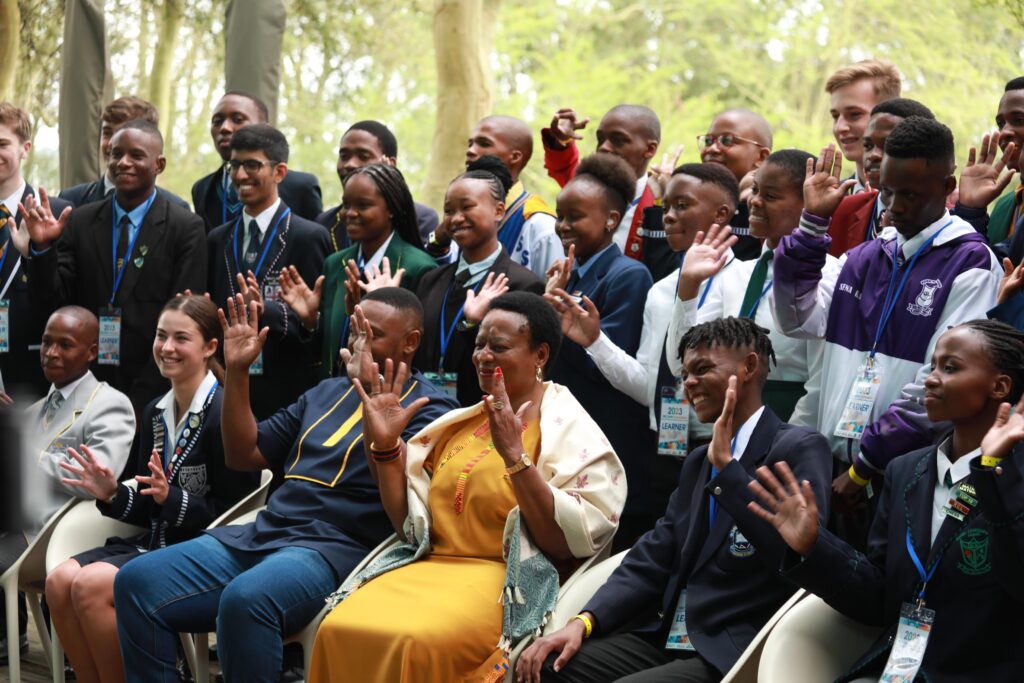 Top Achievers of 2023
Top Achievers of 2023 Top Achievers of 2023
Top Achievers of 2023 Top Achievers of 2023
Top Achievers of 2023 Minister of Education Angelina Motshekga
Minister of Education Angelina Motshekga Top Achievers of 2023
Top Achievers of 2023 Top Achievers of 2023
Top Achievers of 2023
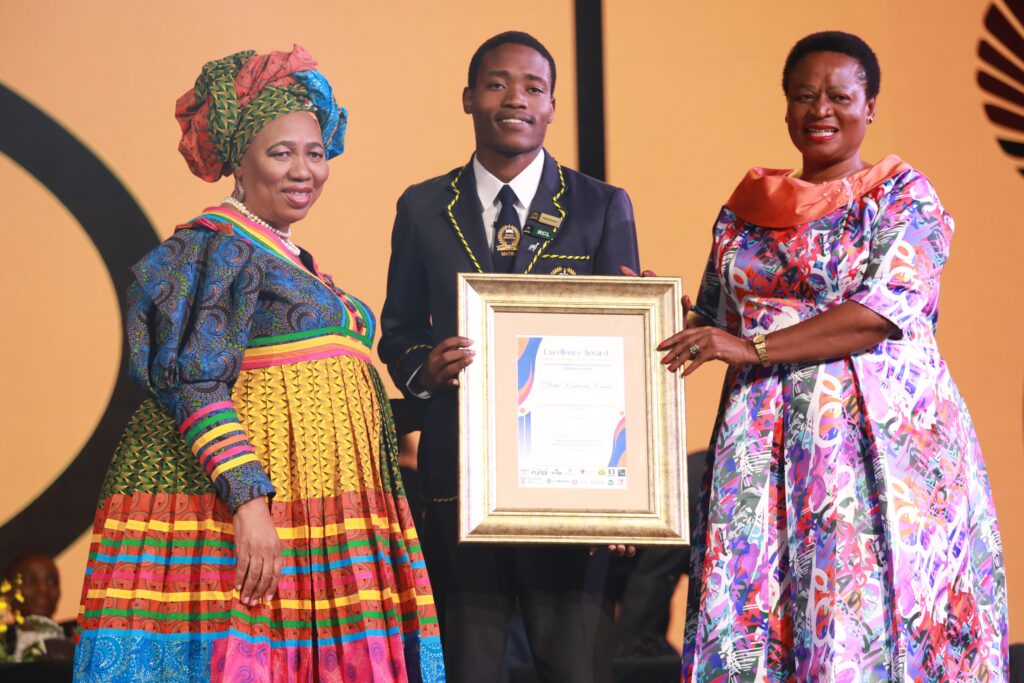 Olwethu Kuhlekonke Khumalo, Mandla Mthethwa School of Excellence, KZN
Olwethu Kuhlekonke Khumalo, Mandla Mthethwa School of Excellence, KZN Jean Goodey, H/S Oos-Moot Gauteng
Jean Goodey, H/S Oos-Moot Gauteng Mellisa Muller Rhenish Girls’ High School WC
Mellisa Muller Rhenish Girls’ High School WC Minister of Education Angelina Motshekga
Minister of Education Angelina Motshekga Deputy Minister of Basic Education, Dr Reginah Mhaule
Deputy Minister of Basic Education, Dr Reginah Mhaule Bonukwenza Thandolwethu Mtshali Kadwa Secondary School KZN
Bonukwenza Thandolwethu Mtshali Kadwa Secondary School KZN Nthabiseng Lefiphana Bokamoso Senior Secondary Limpopo
Nthabiseng Lefiphana Bokamoso Senior Secondary Limpopo Jared Ryan Benn, Wynberg Boys' High School WC
Jared Ryan Benn, Wynberg Boys' High School WC Uphile Shange, Siphesihle Secondary School, KZN
Uphile Shange, Siphesihle Secondary School, KZN Sifanele Vincent Kamte Edenridge Secondary School GA
Sifanele Vincent Kamte Edenridge Secondary School GA Melissa Muller Rhenish Girls High School
Melissa Muller Rhenish Girls High School  Ennocent Menzi Mbimbili, DD Mabuza Comprehensive School,MP
Ennocent Menzi Mbimbili, DD Mabuza Comprehensive School,MP
 Xoliswa Nkabinde, Kwathintwa School for the Deaf, KZN
Xoliswa Nkabinde, Kwathintwa School for the Deaf, KZN Samkelo Gumada, Athlone Skool Vir Blindes, WC
Samkelo Gumada, Athlone Skool Vir Blindes, WC Melissa Muller and Dr Reginah Mhaule
Melissa Muller and Dr Reginah Mhaule Angelina Motshega, Mellissa Muller and Dr Reginah Mhaule
Angelina Motshega, Mellissa Muller and Dr Reginah Mhaule

 Melissa Muller, Rhenish Girls' High School, WC
Melissa Muller, Rhenish Girls' High School, WC  Melissa Muller, Rhenish Girls' High School
Melissa Muller, Rhenish Girls' High School 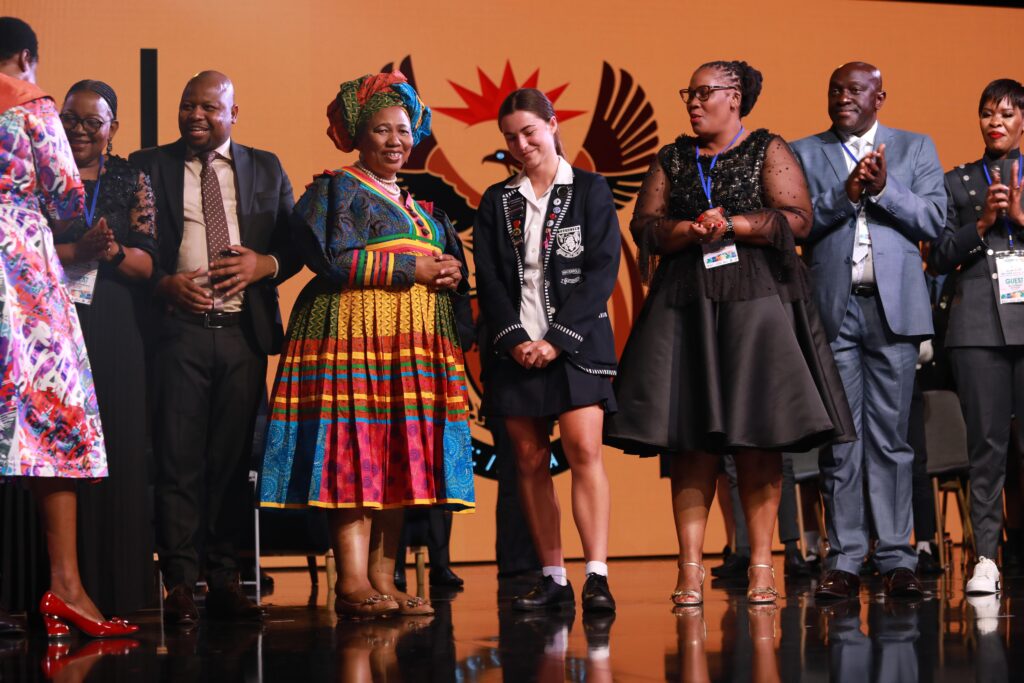 Melissa Muller, Rhenish Girls’ High School
Melissa Muller, Rhenish Girls’ High School Melissa Muller, Rhenish Girls’ High School
Melissa Muller, Rhenish Girls’ High School Melissa Muller, Rhenish Girls’ High School
Melissa Muller, Rhenish Girls’ High School Melissa Muller, Rhenish Girls’ High School
Melissa Muller, Rhenish Girls’ High School Celebrations are high as Dr Reginah Mhaule, celebrates.
Celebrations are high as Dr Reginah Mhaule, celebrates. Melissa Muller, Rhenish Girls’ High School
Melissa Muller, Rhenish Girls’ High School Basic Education Minister, Angie Motshekga , Melissa Muller, David Maynier, MPP
Basic Education Minister, Angie Motshekga , Melissa Muller, David Maynier, MPP Victory for WC
Victory for WC Vicotry for WC
Vicotry for WC Basic Education Minister, Angie Motshekga
Basic Education Minister, Angie Motshekga Parents of Melissa Muller, Top Achiever of 2023
Parents of Melissa Muller, Top Achiever of 2023 Mellissa Muller holds her victory high
Mellissa Muller holds her victory high
- «
- 1
- 2
- »



